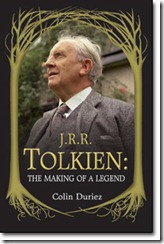Today’s Book was provided by Bethany House Publishers. A free book was provided in exchange for the review.
I have been putting off this review of Dr. R. Albert Mohler’s The Conviction to Lead. Really, it should have been done a month or more ago, but I have been struggling with how to present it to you. I’ll get to why near the end.
On the front side of the situation, The Conviction to Lead is a good exploration of what it means to lead an organization and what it takes to lead against an organizational inertia that runs in a different direction. Part of this is illustrated in Dr. Mohler’s years at the helm of The Southern Baptist Theological Seminary, one the oldest institution in the Southern Baptist Convention and one of the older theological training schools in the Americas. (At least for Protestant Christians, that is.)
Working through The Conviction to Lead, the principles presented are sound. Some of them, such as “leaders are readers” have almost attained cliché status, but are here explored and reminded. This is valuable. Mohler claims to have written a comprehensive book, and phrases such as “leaders are readers” are cliché because they have long been part of comprehensive leadership.
As with many books on leadership, The Conviction to Lead strings together quotes from other authors and speakers regarding leadership. CFOs and CEOs and various other Os are quoted, though there are no UFOs mentioned. Further, while Mohler does not cite a Bible passage for every point in his work, his effort is obviously to set forth a Biblical foundation for his principles.
Where I stumble with this book is not so much in the material. It is in the author. The material is fine—it's not exceptional but it does the job. If you need a one-book leadership book to require in a college/seminary course for Christian leadership, this will fit the bill.
There are some questionable leaps by the author in this text. Leaving aside the questionable positive endorsement of a troubled religious leader in the acknowledgements, there are statements like “A leader who does not know how the work is done cannot possibly lead with effectiveness.” This rings a little hollow coming from someone who went from newspaper editor to seminary president with little academic experience and seeks to instruct future pastors (and critique the methods of current ones) with very little pastoral experience. In short: Mohler advocates knowing how the work is done when his leadership experience comes from leading in work he never did.
Further, while I support the overall effort to retrack the Southern Baptist Theological Seminary back to its confessional roots (all of them, mind you), I have seen and heard the results to people from the leadership methods to get there. It has not been rosy, and the collateral damage to individuals has been greater than The Conviction to Lead acknowledges. The reality is, based on the author’s own actions, if you put the principles in action from this book as the author does, people will get hurt in the process. Some of this is because of their opposition to your leadership—some is because bulldozing is never subtle.
In all, I would double my esteem of The Conviction to Lead had it been written by someone whose track record I did not know both rails of. The material is good, the writing is clear and on-point, but the personal history behind it bothers me.
Free book from Bethany House in exchange for the review.









